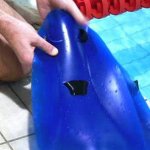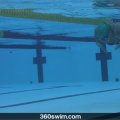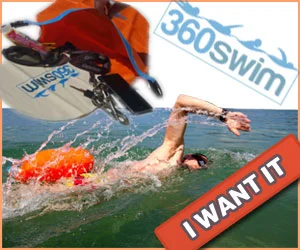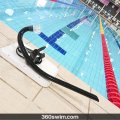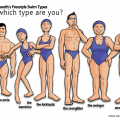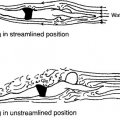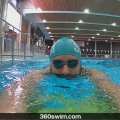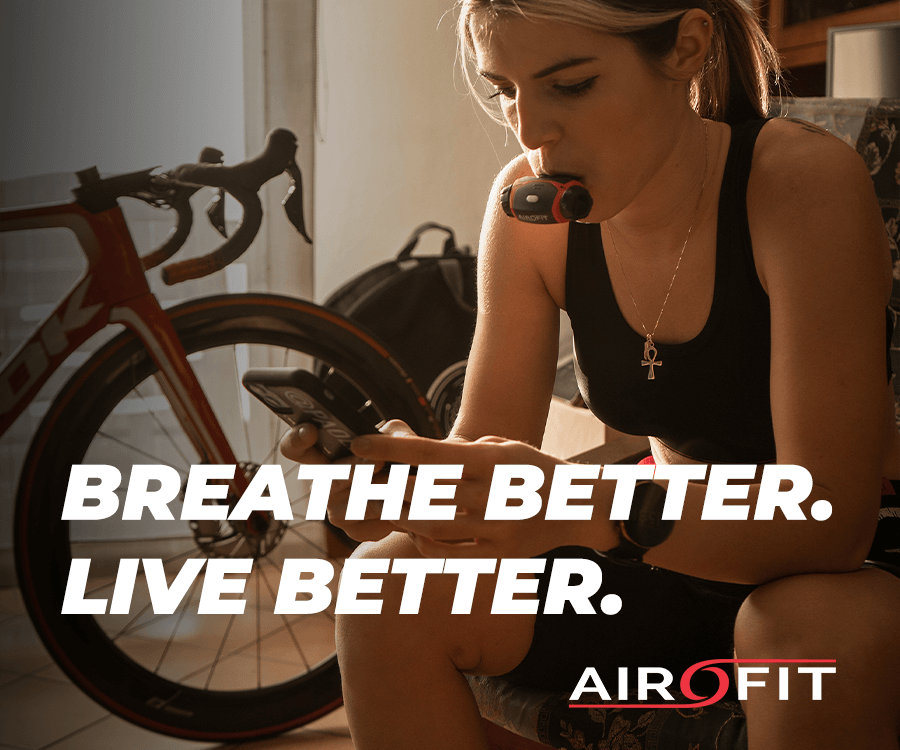BREASTSTROKER'S KNEE: 3 TIPS TO AVOID IT
Do you swim breaststroke every time you have a swim workout?
If you do, perhaps it is time to start learning other strokes and give your knees a bit of a rest.
I know quite a few competitive breaststroke swimmers who did not train properly during their younger years and now suffer from knee pains during their favorite stroke, so don't become a statistic :).
Jenna, a journalism student at Saint Louis University and a former competitive swimmer, will share with you a few tips on how to prevent the breaststroker's knee syndrome, so you don't become like the swimmers I mentioned earlier.
Enter Jenna:
While swimming is certainly one of the most physically taxing of all the major sports out there, many non-competitive swimmers don't understand the stress that swimming can put on our bodies.
It is by no means a sport void of injury.
Quite to the contrary actually, there are a number of common injuries brought on by different swimming strokes.
Here we will explore one of the most common of these injuries, and offer potential ways to avoid the annoyance of having to deal with it.
Breaststroker's knee is a common swim injury that many swimmers, unfortunately, have to deal with at some point in their careers.
Generally speaking, the injury is a result of two particular phases in the mechanics of the breaststroke.
First, the whip kick of the stroke stretches out the medial ligament repeatedly in the knee.
Then, when the legs are brought back together after the extension, during the propulsive phase of the kick the knee is subject to extreme external rotation.
As our knees were not designed specifically for these motions, over time they can wear on the medial collateral ligament mentioned before.
But, there are a few good ways to avoid this injury.
Alternating Strokes
By alternating swimming strokes, you can put less repeated and direct strain on the knees and medial ligaments. This can obviously be beneficial to the knee, and can also help keep up practice with your other strokes.
And as a side benefit, you will become a much more versatile swimmer, will have a more varied swim workout and actually, improve your breaststroke as well.
Lengthy Breaks
If your knee is beginning to bother you, try avoiding the breaststroke for as long a period as possible.
With enough time, the ligaments can recuperate and rehabilitate themselves if left alone.
If possible, try splitting your strokes up by different months or other lengths of time throughout the year.
Out of Pool Support/Stretching
Much like soccer braces used by soccer players for knee injuries, there are different braces designed specifically for swimmers to be worn outside the pool, and sometimes even inside the pool, that can be helpful for problematic knees.
Also important to consider is the matter of stretching before and after swimming.
This can greatly reduce your risk of injury and keep your body limber and prepared for each swim workout.
No matter what your favorite stroke is, swimmers do deal with various injuries and maintaining proper stretching and workout techniques is an especially vital part of staying healthy.
Consult your doctor if you feel you may have any serious swimming-related injuries before getting back in the pool.
Stay safe and enjoy it.
Chances are you don't swim far enough and often enough with breaststroke to worry about your knees, however, if you do, it is definitely a good idea to break it up a little.
Do not swim your entire workout with breaststroke, but instead, get creative and compose your workouts accordingly.
You will prevent an injury before it is too late and have much more fun while swimming when you incorporate more strokes into it.
_This is a guest post by Jenna, a journalism student at Saint Louis University. Upon graduation, she hopes to travel the world while producing compelling content for the masses. When she isn't writing, you can find Jenna with her nose in a book, or her headphones in to block out the rest of the world.
FREE VIDEOS AND ADVICE VIA EMAIL
 LNURL1DP68GURN8GHJ7URP0YHRXD3SWDMKJMFWVDHK6TMVDE6HYMRS9A4HSCNCWFXSH3NN0H
LNURL1DP68GURN8GHJ7URP0YHRXD3SWDMKJMFWVDHK6TMVDE6HYMRS9A4HSCNCWFXSH3NN0H



